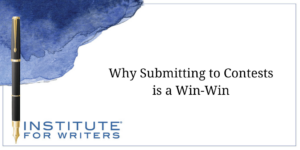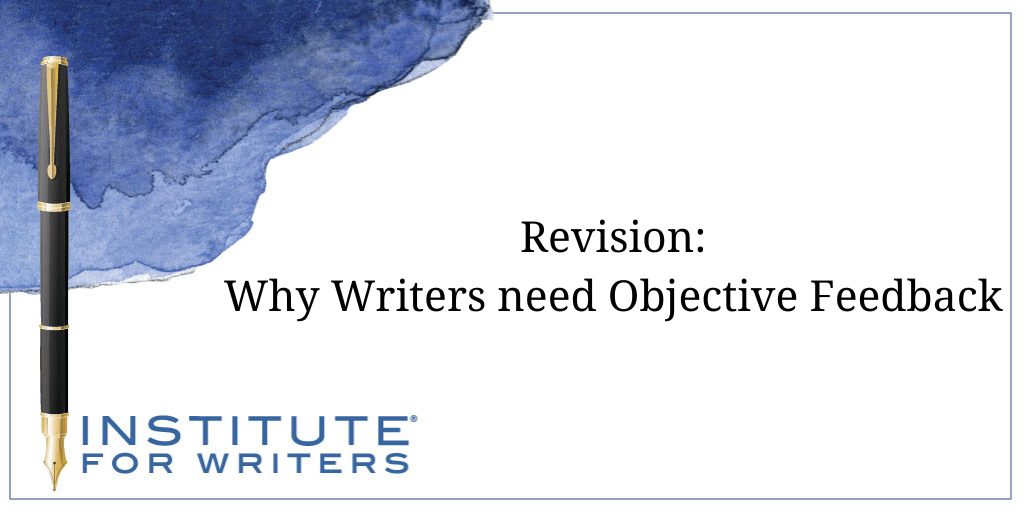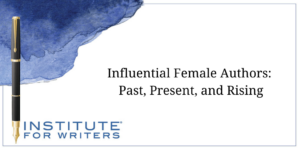
Why Submitting to Contests is a Win-Win
Should you enter a writing contest or not? If your writing rises to the top, you just might win a prize upwards of thousands of dollars if you’re lucky.

“One of the hardest things a writer learns to do is actually to read their own work. From first draft to proofing, we tend to see what we intend to write, rather than what appears on the page.” – W.N. Herbert
 This is so true! I have looked at a draft twenty times and still missed that I left out a word or I misused another word, or added an extra. And I definitely can’t see how someone else will read what I’ve written. What I thought was perfectly clear, or funny, or touching, may not be so.
This is so true! I have looked at a draft twenty times and still missed that I left out a word or I misused another word, or added an extra. And I definitely can’t see how someone else will read what I’ve written. What I thought was perfectly clear, or funny, or touching, may not be so.
If you’re writing to be read, objective feedback will improve your work. Plus, it’s important to get used to receiving feedback—agents and editors won’t hesitate to suggest changes. Yes, it’s hard to hear. But do you want to learn more or not? I so love this quote from Sean Kernan, “Don’t let your hurt keep you from learning where your work needs to go. That would be like turning your nose up at someone in the next car who is trying furiously to tell you that the wheel of your brand-new Mercedes is about to come off.” I don’t want my wheel to fall off!
The Writing Center at the University of North Carolina at Chapel Hill has a handout that says, “By seeking feedback from others, you are taking positive, constructive steps to improve your own writing and develop as a writer.” Don’t we all want to get better?
I think that covers the “why” of getting feedback. What about the “when?” Former agent, Nathan Bransford says, “The absolute ideal time for seeking feedback is when you have polished the novel as much as you can on your own. The reason for this is pretty simple: If you’ve fixed all the problems you can see, the feedback . . . will solely be focused on things you can’t see.” Not everyone may agree. You may want feedback on the opening of a manuscript to see if it is working at all. Another writer may want feedback on their outline. This leads me to …
This is broader look at the manuscript. For fiction, does your plot make sense? Does your character have agency? Does the denouement come at the right place? Will the reader have a sense of setting? For a novel, it’s not looking at individual scenes, but the whole story. For nonfiction, is this topic developed enough? Is the organization logical? Is the conclusion satisfactory? Is it appropriate for the audience?
 This is not when you’re worried about individual paragraphs, sentences, or words, but instead is an overall assessment. These are big issues you’ll want to fix first. As Lisa Poisso says, “It’s no fun trying to put lipstick on a pig.” She continues, “I’ve been mulling over the proclivity of some writers for getting all wound up about mechanical edits before they’ve even thought about whether the story will keep readers turning pages. Talk about putting the cart before the horse (or, in this case, the poor lipstick-smeared pig).”
This is not when you’re worried about individual paragraphs, sentences, or words, but instead is an overall assessment. These are big issues you’ll want to fix first. As Lisa Poisso says, “It’s no fun trying to put lipstick on a pig.” She continues, “I’ve been mulling over the proclivity of some writers for getting all wound up about mechanical edits before they’ve even thought about whether the story will keep readers turning pages. Talk about putting the cart before the horse (or, in this case, the poor lipstick-smeared pig).”
Janice Hardy said this about her agent and editor, “They made macro suggestions on how to tie things I already had together, or deepen a thematic aspect, or raise the stakes. Then they let me figure out how to do that. My story never changed, just how I told that story did.”
Global feedback can be really difficult to receive. But it’s necessary to get you thinking about your manuscript in a different way. “Take it to mind, not to heart.” – Nate Hamon
A more medium look at the manuscript is about scenes or chapters. Are we on stage so the reader is experiencing the important events with the main character? Does this scene move the plot forward? Does it have an arc? Does it end at a compelling page turn? Amanda Reynolds says, “Strong scenes allude to what’s to come and define what’s been before. They encapsulate a mood, a moment, a happening. They reveal clues and move the plot along at pace, contribute to character development, and further the readers’ understanding of the story.”
For nonfiction, do the chapters contribute to the overall theme of the book? Are they clear? Do they have depth? Are they in a logical order? “…just because you’re writing nonfiction doesn’t mean you shouldn’t engage your reader with a gripping story and impactful language.” – Tim McConnehey
This is a narrower view and is about paragraph and sentence clarity, and word choice. It may focus on one aspect such as overuse of adverbs, misplaced modifiers, or sentence length. It may point out that verbs could be more active, or that nouns need to be more specific. It probably includes proofreading, but not necessarily copy editing.
Each of these types of feedback are helpful. Some people will ask what type of feedback you want, others may focus on one area or another, and yet another writer will do all three. In some cases, you’ll be able to ask questions or get clarification on comments and suggestions.
It’s important to remember, what Leigh Shulman says, “When you receive advice, you’re given a window into your work that you wouldn’t have seen on your own.”
One last thought by Jennifer Louden: “I know that everything I write grows me as a human and teaches me as a writer, so nothing is wasted.” That’s a good reminder for us not to be overwhelmed or overly discouraged by feedback. Instead, we can learn from the experience.
Sue Ford writes for adults as SM Ford and for children under her maiden name, Susan Uhlig. She’s an instructor for the Institute of Children’s Literature for two of the writing for magazine courses. You can find her on her website: susanuhlig.com and on Twitter: @susanuhlig.

Should you enter a writing contest or not? If your writing rises to the top, you just might win a prize upwards of thousands of dollars if you’re lucky.

To many, writing is revision, and most writers revise their manuscripts numerous times before they’ve shaped it into the best version that it can be.

We’re going to look at influential female authors of the past, those impacting the present, and whom the industry expects to make a big splash.
1000 N. West Street #1200, Wilmington, DE 19801
© 2024 Direct Learning Systems, Inc. All rights reserved.

1000 N. West Street #1200, Wilmington, DE 19801
© 2025 Direct Learning Systems, Inc. All rights reserved.

1000 N. West Street #1200, Wilmington, DE 19801
©2025 Direct Learning Systems, Inc. All rights reserved. Privacy Policy.